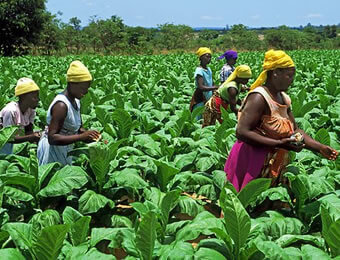A stakeholder in the agricultural sector has called on the government to capture large scale farmers more in the Anchor Borrowers Program (ABP) so that the sector could be industrialised.
The Chairman, Harvest Feeds Agro-Processing, Goke Adeyemi, while speaking with Tribune Online, said capturing more smallholder farmers in the ABP would not guarantee commercialisation of the agricultural sector.
“The Anchor Borrowers Program (ABP) initiative was a good one, but I want to make bold to say that in Nigeria, we need to look at things from the local aspect of it.
“Anchor Borrowers now is still for me more of a lot of bureaucracy around it, that is why till now we have not gotten to the commercialisation of farming.
“We need to commercialise cassava farming for the industry to be able to have the quantity they require, so far, we are still talking about smallholder farmers.
ALSO READ: Stakeholder seeks decentralization of power generation, distribution
He said the aspect of Anchor Borrowers Program (ABP) that will recognize commercialized farming is highly needed.
“Not a one-hectare farming, for me that will not help industrialisation, we need farmers having over 1000 hectares to be enrolled in the Anchor Borrowers Program,” Adeyemi added.
He said when large scale farmers are captured in the ABP, it will reduce the cost of production and encourage industrialisation.
Speaking on cassava production, Adeyemi, who is also a cassava starch processor, said there is cassava yield in the country.
He, however, called for collaboration among stakeholders in the sector in order to increase the yield of cassava from about 25 tons per hectare to about 50 tons per hectare.
“The cassava yield is still low, we are still talking about 20 to 25 tons per hectare, but it is possible to get 40 tons to 50 tons per hectare.
“Maybe there need to be collaboration between the research Institutes, the practical commercial farmers and the starch producers in Nigeria to get cassava yield up to 50 tons per hectare.
“By that time, the price of tubers will be sufficiently low so that bags of starch can also be low, because when you want to export, you have to compare yourself with Asia because if your price is high, you cannot export.
“Government need to be put the conditions that will make commercial cassava farming very easy for Nigerians who want can venture into it.
“For example, I have completed the expansion of my own starch factory from 25 tons per day, now I have an installed capacity of 60 tons per day of cassava starch,” he noted.
WATCH TOP VIDEOS FROM NIGERIAN TRIBUNE TV
- Relationship Hangout: Public vs Private Proposals – Which Truly Wins in Love?
- “No” Is a Complete Sentence: Why You Should Stop Feeling Guilty
- Relationship Hangout: Friendship Talk 2025 – How to Be a Good Friend & Big Questions on Friendship
- Police Overpower Armed Robbers in Ibadan After Fierce Struggle






